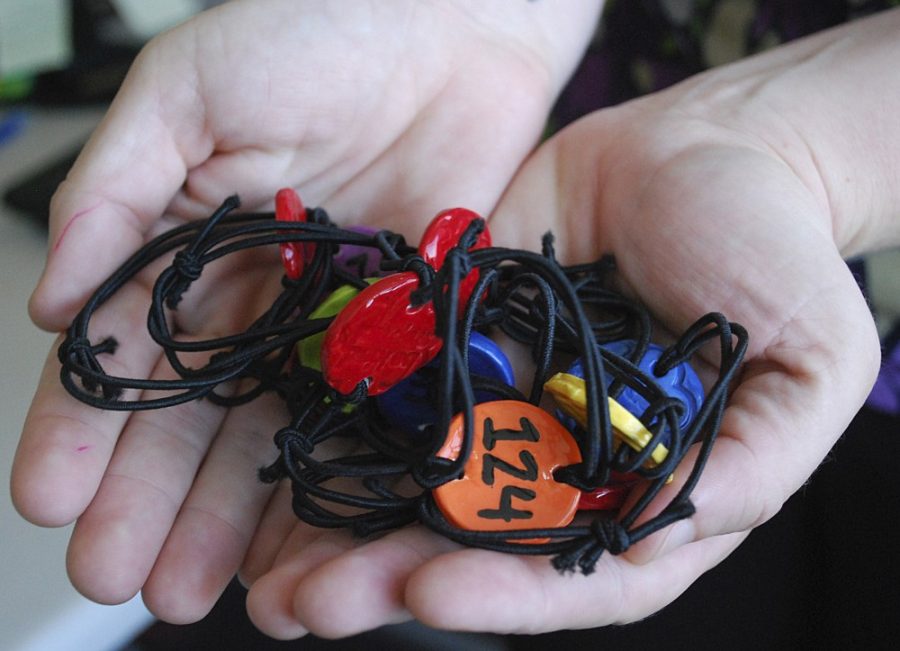A new kindness campaign launched on Monday seeks to show what goes around comes around, or at least goes around your wrist.
The campaign is a partnership between Ben’s Bells, a project to empower individuals through acts of kindness, and Step Up, Campus Health Service’s violence prevention education program. The program features Campus Health employees giving out bracelets reading “Be Kind. Step Up!” which individuals then pass on to those they witness doing good deeds.
The recipient then goes online to share why they received it and enter the bracelet’s tracking number, located on the back, to follow where the bracelet goes.
Erin Strange, a violence prevention specialist at Campus Health, said she initially got the idea for the campaign while at a conference in Philadelphia. Although other schools had kindness campaigns, she explained, they did not teach people how to care actively.
“We (Step Up) have a real appreciation for the acts of kindness we see on a daily basis,” she said. “With 40,000 students we can’t reach everyone with the Step Up program, but this helps us spread it further.”
Strange and her colleagues passed out the 200 bracelets they had on Sunday at the New Student Convocation. They will be making about 5,000 over the course of the year, and additional bracelets will come out in waves. The bracelets will then be stocked at the offices of the Associated Students of the University of Arizona, Counseling and Psychological Services, the Dean of Students Office and Campus Health.
“With everything that the UA and Tucson has gone through lately, this is another way to make our community a better place,” Strange added.
Volunteers, including students and Campus Health employees, made the bracelets. In order to make them, clay is rolled and flattened, then stamped with the “Be Kind. Step Up!” logo. They are then fired, painted, glazed, stamped with the tracking number and fired again.
Cassie Williams, a studio manager at Ben’s Bells, said the project is important because it allows people to recognize acts of kindness on a day-to-day basis.
“Everyone is focusing on where they need to go and what time they need to be there,” she said. “This allows people to stop and be aware of others.”
Karen Johnston, a student worker for the Oasis Program at Campus Health and Step Up, also said that the project is important because it provides a visual symbol of people coming together to help each other.
“It’s a cool way for people to show their gratitude,” she said. “This will encourage people to do kind deeds more often.”









